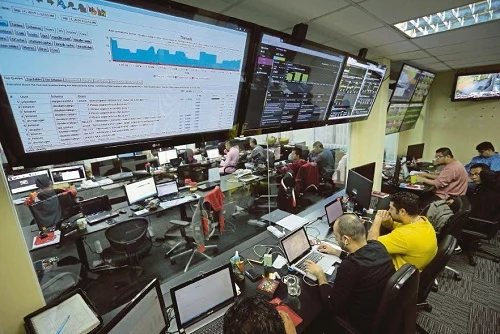BIG Data drives marketing today. Global brands are realising big gains from Big Data analytics by influencing consumer behaviour. Amazon, one of the first companies to anticipate the potential of Big Data, proved it when its chief executive officer Jeff Bezos became the world’s richest person, after Amazon’s earnings report was recently made public. Forbes stated that retailers who leverage on Big Data are able to increase their operation margins by 60 per cent.
Data-driven intelligence has been used successfully especially in technology and business, while being rapidly explored in other areas — health, agriculture, transportation services, banking sectors and so on. Big Data has also been said to influence voting behaviours, for instance in the controversial Trump and Brexit campaigns.
Since Big Data trend has arrived in Malaysia, is it possible to use it to combat some of Malaysia’s social problems? Seldom a day passes without us reading the news about social illnesses in Malaysia: drug-related problems, physical and sexual abuse and teen crimes. How can we fix this?
Unfortunately, the complexity of social problems has diverted people’s attention away from the root causes of the problems, thus leading to unsuccessful solutions.
Here, Big Data could play a big role through pattern-matching algorithms which can give valuable insights into the origin of the social problems as well as provide focus on finding effective solutions. Several countries have attempted to leverage on the power of data analytics for this purpose.
In the United States, the opioid epidemic is causing the death of more than 15,000 patients every year as well as impacting the lives of a further two million people who abuse or depend on painkilling drugs. In addressing the problem, data intelligence is used to identify effective therapies to stop the addiction, cut down on fraud in prescribing the drugs, as well as in deciding ideal places to build new opioid treatment facilities.
In New Zealand, Big Data is used to predict the risk that a child will be maltreated. It is said that the prediction is as accurate as a mammogram detects breast cancer. These insights allow vulnerable families to be assisted ahead of time, preventing the likelihood of children being physically, emotionally or sexually abused. Further, data intelligence could help centres classify the thousands of calls they receive based on the urgency for those families to be assisted. Lack of education, whether in terms of limited opportunities or lack of interest, could also be one of the contributors to social problems. While we see Malaysia becoming a more competitive society, the focus on top students obtaining the best results also mean that a lot of others are left neglected.
Also in the US, data is used to develop an “early warning system” to identify students who need the most assistance in terms aid programmes. Further, Big Data is also used to assess the effectiveness of intervention programmes implemented. However, application of Big Data analytics in social context may not come easy. Challenges come in the form of:
LACK of structured Big Data for social problems. Oftentimes, data are missing, incomplete, or stored in silos. Due to the nature of social data that are messier, more dynamic and complex by virtue of the sum of stakeholders involved, collaborations between various parties to contribute and integrate data is critical to create effective strategies.
SHORTAGE of skilled workforce. As we move rapidly into the Fourth Industrial Revolution, the change in the supply and demand for jobs undergoes a similar rapidity. Unfortunately, the immense demand for data specialists does not match the scarce supply.
THREATS imposing ethical issues in relation to data privacy, confidentiality, transparency and prejudice. There have been concerns that Big Data tools would reinforce prejudice and biases by targeting a certain group of people. Privacy and confidentiality of data, which can compromise identity, could be abused if they fall into irresponsible hands. Big Data also requires transparency – unfortunately, more often than not, data is being used, or sold, without people’s knowledge and consent.
While Big Data may be the answer to address the critical social problems Malaysia is facing, the effort in battling the social plague requires support from all parties to ensure the strengthening of data collection as well as the advancement of skilled workforce. Further, collaboration between statisticians, social work practitioners, ethics specialists and experts on disparities is important. Lastly, it is also important to realise that Big Data is a double-edged sword — Big Opportunities, Bigger Responsibilities.





